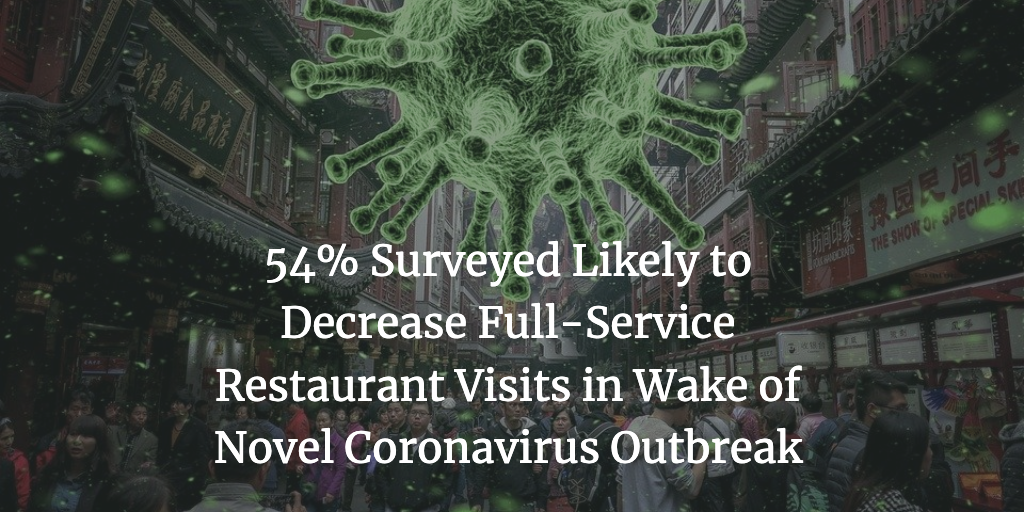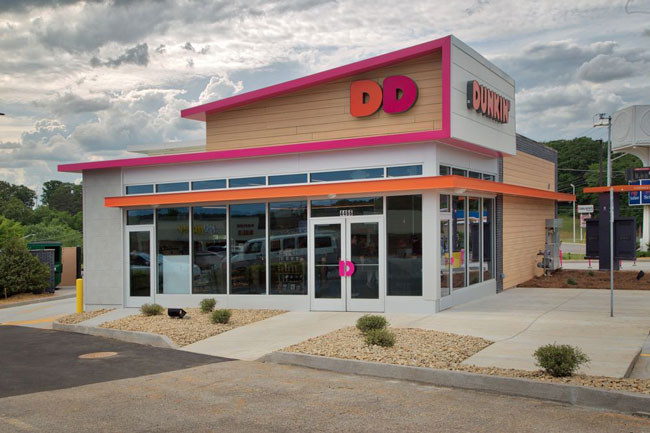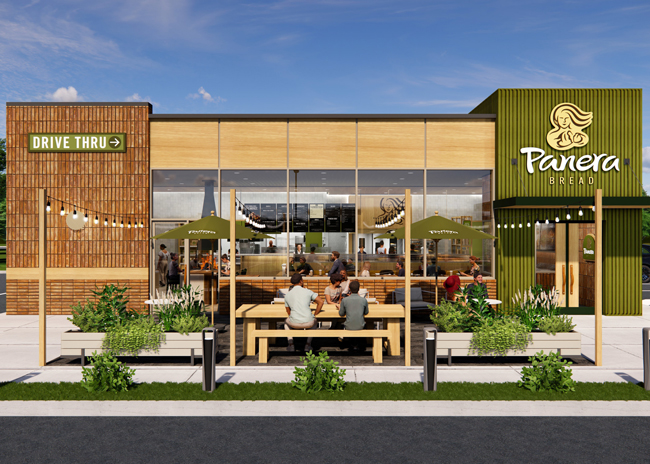The novel Coronavirus has led to nearly 60% of consumers being concerned about dining out, with one in five “definitely” avoiding doing so, according to Datassential’s Coronavirus research report, fielded March 10 with 1,000 U.S. consumers. Fears are highest among parents (26%), urban dwellers (25%) and high earners (26%, those with household incomes over $100k/year).
While some (16%) may reduce how often they order take-out, 54% surveyed say they are likely to decrease the frequency of how often they eat at full-service restaurants.
Datassential’s survey backs up data from Black Box Financial Intelligence that found upscale full-service restaurants in the state of Washington (which includes Seattle, the market in which the first major outbreak occurred in the U.S.) reported the most negative effect in terms of sales lost. Overall, Seattle saw a 10% drop in restaurant sales in the first week of the outbreak, but observers expect that number to jump to at least 20% upon the collection of more data. However, average to-go sales by restaurant location increased by 10.5% in Seattle during the week ending March 1. These shifts seem to indicate that as concerns for the virus continue to rise, guests will likely favor faster or off-premises dining experiences versus extended sit-down restaurant meals that involve interacting with servers and sitting among other guests.
Indeed, Datassential’s survey found that just 11% of respondents said eating away from home/at restaurants felt safer than eating at home. Survey respondents noted they were concerned about contracting COVID-19 from every kind of dining segment.
The following is a list of segments and the percent of survey respondents who believe visiting the type of establishment would increase their likelihood to contract COVID-19:
- 49% — Buffet restaurants
- 48% — Bars, clubs, lounges
- 46% — Cafeterias
- 45% — Food courts/food halls
- 39% — Hotel restaurants and bars
- 34% — Limited-service restaurants
- 32% — C-stores
- 29% — Grocery stores
- 27% — Casual dining
- 21% — Grocery deli/baker
- 21% — Fine dining
When asked what would make them more comfortable about dining out in the wake of the novel Coronavirus outbreak, 57% said regularly/visibly wiping down tables, kiosks and other areas people frequently touch. Other top answers include employees visibly wearing food safety apparel (46%), restaurants handing out disinfectant wipes for customer use (43%), more food covers and enclosed cold cases (42%) and no open containers (40%).




